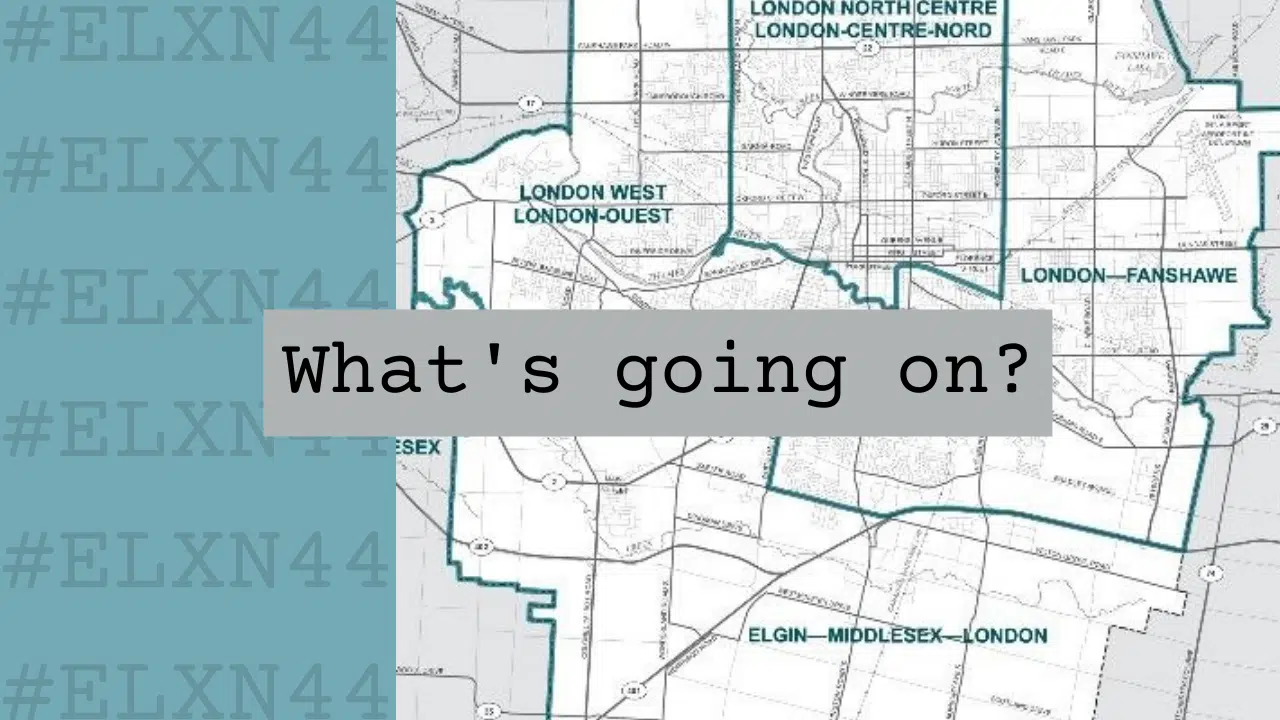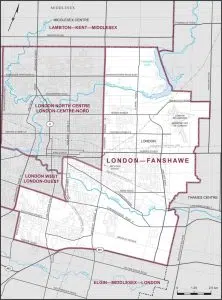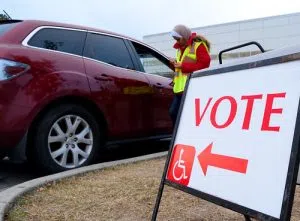
This election has been unprecedented, but we don’t need to tell you that. Matt Farrell can.
Farrell is an elections analyst and a professor at Fanshawe College and Wilfrid Laurier University. He says Canadians are seeing a different election to previous ones. Perhaps spurned by the pandemic, perhaps having been influenced by our neighbors to the south– regardless– Farrell says this election has been new to Canada.
“We’ve got supporters that are stalking leaders, throwing things at them . . . which is definitely new in a Canadian context.”
If you’ve put off looking into this election, if you’re overwhelmed by endless headlines– look no further. Its all here: a crash course into this year’s unprecedented Federal election.
What to know:
“Many folks didn’t want an election.” Farrell says. “I think the motivations were quite obvious. The Liberal government wanted to get a majority and that’s often the goal with snap elections . . . anytime that happens, you’re going to start with a bit of a bad taste in your mouth.”
The Liberal government was off to a rocky start if they wanted to push for a majority government. Coupled with the cynicism for this snap election, the withdraw from Afghanistan garnered some negative headlines about Liberal leader Justin Trudeau. But that may have been a good thing for them, as Farrell explains:
“I got the impression that they were really trying to make it about ‘us versus the crazies.’ We’re the sensible ones. Those other people are being ridiculous. We want to get everybody vaccinated, those people don’t. And that’s how they were trying to frame the election.”
“In recent days, we’ve seen the protests at hospitals, we’ve seen gravel throwing, we’ve seen the hecklers. And that kind of reinforced that we’ve come full circle. We’ve come back to that message that the liberals have wanted to share at the beginning of a ‘look, it’s us, or it’s, it’s these crazy folks.’ In terms of the liberal messaging that’s kind of come back to play to their strengths.”
The conservatives and their leader Erin O’Toole were riding high early in the campaign, sailing on anti-Trudeau sentiment. Capitalizing on disdain for the sitting Prime Minister worked well for them.
“They were really able to take advantage of that we saw quite a shift in in public sentiment during that time period, where people seem to be flocking to the conservatives.”
The NDP has been trailing the Liberals and Conservatives in third place, according to poles. They dominated London’s provincial ridings in 2018 and also gained ground across Ontario, becoming the official opposition on the provincial level. Farrell says that is not necessarily reflective of this election.
“Ontario is a weird province. In Ontario, our voters vote differently provincially and federally sometimes . . . The NDP does believe that they can make some gains here. Perhaps pick up one or two of the Federal ridings that they don’t have. So there is some some room to grow.”
Farrell points out that public opinion often swings wide during an election. While one party may look poised to win, that could change.
“It could be as simple as something happening over the weekend that shifts public sentiment in one way or the other and moves a few thousand votes. There’s these 30 ridings that are so close. Last election was decided by a handful of votes.”
Regardless of where poles suggest where an election is going, it isn’t over until its counted. Even so, you can track how poles are projecting the results here.
London’s Ridings:
 London has 4 ridings: London-West, London-Fanshawe, London North-Centre, and Elgin-Middlesex-London. Listed below are the representatives for the main 3 parties, though there are other parties running such as the Green Party and the People’s Party of Canada.
London has 4 ridings: London-West, London-Fanshawe, London North-Centre, and Elgin-Middlesex-London. Listed below are the representatives for the main 3 parties, though there are other parties running such as the Green Party and the People’s Party of Canada.
London-West
London-West is far and away the most interesting riding this year. There’s no incumbent, or sitting MP, so its a toss-up.
“I don’t think I’d necessarily say that’s a guaranteed liberal seat,” Farrell says. “It’s a strong three-way race in London-West. It can go in any direction.”
Rob Flack is representing the Conservatives, Arielle Kayabaga is for the Liberals, and Shawna Lewkowitz is for the NDP.
London-Fanshawe
Mattias Vanderley is London-Fanshawe’s Conservative pick, Mohammed Hammoud is the Liberal option, and Lindsay Mathyssen is the NDP nominee. Mathyssen is the sitting MP and has been serving since 2019. Before her, her mother Irene held the position. She served London-Fanshawe from 2006-2019.
London North-Centre
London North-Centre’s Conservative is Stephen Gallant, Peter Fragiskatos is the Liberal choice, and Dirka Prout is for the NDP. Fragiskatos has been serving in office since 2015.
Elgin-Middlesex-London
Karen Vecchio is the conservative running for Elgin-Middlesex-London. Afeez Ajibowu is running for the Liberals, and Katelyn Cody is running for the NDP. Vecchio has held the position since 2015, after she succeeded Joe Preston for the chair. He held the riding from 2004-2015.
Where to go:
For some students, where to vote and which riding they would be voting for was up in the air. If you’re a student living on campus, you can find more information here.
You can go on Elections Canada’s website with your postal code to find where exactly you need to go to vote.






Comments